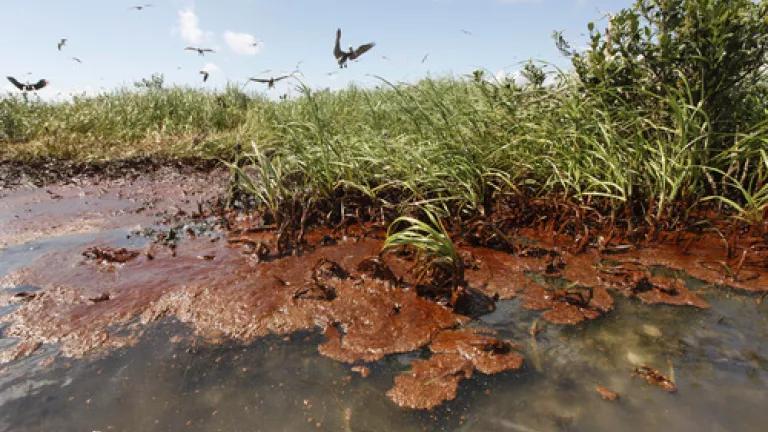
The Senate has finally passed its first piece of legislation responding to the BP oil disaster in the Gulf of Mexico—one that places a welcome emphasis on reviving the wetlands, fishing grounds, and other ecosystems that sustain Gulf communities.
More than 170 million gallons of Louisiana crude got pumped into the Gulf when the Deepwater Horizon rig exploded. More than 1,053 miles of shoreline were oiled. Fisheries were shut down, wildlife was killed, and tourist businesses were shuttered. Gulf residents have been slowly rebuilding their lives, but the natural systems in the region are still in grave need of restoration.
When I served on the National Commission on the BP Deepwater Horizon Oil Spill and Offshore Drilling, we made ecosystem revitalization one of our top recommendations. I am glad the Senate has finally acted on our counsel and passed the RESTORE Act.
The Act will direct 80 percent of the fines paid by BP to the five Gulf states to revive ecosystems and economies damaged by the spill. Marine life and multibillion-dollar industries depend upon these coastal environments. Now the region will have much needed funds to help them rebound.
The act also dedicates half the interest generated from the fines to a new National Endowment for the Oceans that will provide a steady stream of funding for ocean restoration and conservation projects around the country. The endowment is an important tool to help maintain the clean water and beaches, and the abundant fish and wildlife upon which our coastal economies rely.
The RESTORE Act was attached as an amendment to the Senate’s transportation bill, and though most of the other amendments created sharp divides along party lines, the Gulf measure passed with overwhelming bipartisan support.
The Senate passed the entire transportation bill—also with bipartisan backing—on Wednesday.
We strongly urge lawmakers in the House to quickly adopt the Senate transportation bill. Not only will this mark a major achievement for our nation’s infrastructure, it will also mark a real victory for the Gulf and for our oceans around the country.
In a month, on the second anniversary of the spill, the oil spill commissioners will issue our first report card on progress the oil industry, administration, and Congress has made in implementing our recommendations. That offers a good deadline for the House to act.
Restoring resilience to the Gulf ecosystem is essential for sustaining the Gulf economy now and for future generations. The Senate has taken important steps in that direction. Now the House must do the same.